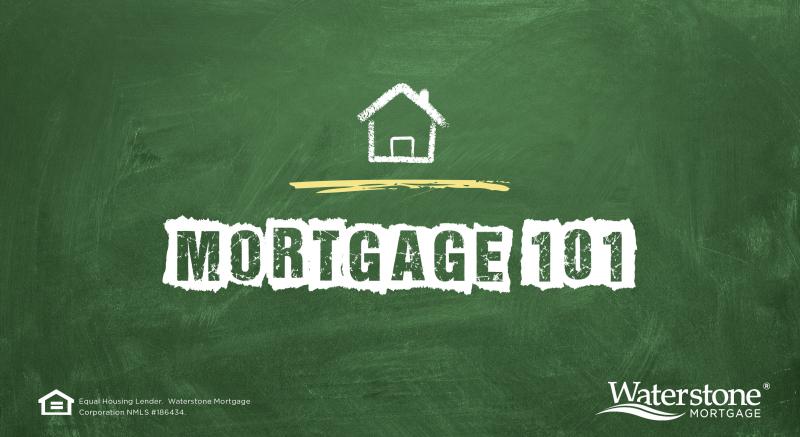Share:
Glossary of Key Home Loan Mortgage Terms
July 31, 2018
If you’re buying your first home (or even your first home in awhile), an intro to mortgage terminology could greatly improve your homebuying experience. To help you be a confident homebuyer, bring clarity to commonly used mortgage terms, and to better help you understand the mortgage process, we’ve compiled a list of some of the most basic phrases used when buying a home.
- Annual Percentage Rate (APR) – An APR is a broader measure of the costs associated with borrowing money. The APR reflects the interest rate, discount points, and any other charges you pay to get a loan. As a result, your APR is usually higher than the interest rate. APR is expressed as a percentage.
- Appraisal – An appraisal is a written, professional analysis used to estimate the value of the property. The appraisal includes examples of sales of similar properties in the same neighborhood, which helps to establish the value of the property. An appraisal is often a necessary step in securing home financing because it validates the home’s worth to you and your lender.
- Closing Costs – These are the costs to complete your real estate purchase or refinance transaction. These costs are in addition to the price of the home (purchase transaction) or pay-off balance (refinance transactions) and are paid at closing. Closing costs may include appraisal fees, tax service provider fees, discount points, taxes, title insurance, financing costs, and items that must be prepaid or escrowed. Lenders are required to provide a Closing Disclosure, detailing all costs, three days prior to your loan closing.
- Credit Score – Your credit score predicts how likely you are to pay back a loan on time. A number ranging from 300-850, your credit score is based on an analysis of your credit report. Credit scores are impacted by your bill-paying history, unpaid debt, type and number of accounts you have open, length of credit history, credit available, and credit activity (applications for new credit), as well as judgments, collection accounts, foreclosures, and bankruptcy. Your credit score plays a significant role when securing a mortgage. The higher your score, the better the financing terms; but many buyers believe they need at least a 780 score to qualify when, in actuality, over 55% of approved loans had a score below 750.
- Discount Points – A point equals 1% of your loan (1 point on a $200,000 loan = $2,000). You can pay points to buy down your mortgage interest rate. It’s essentially an upfront interest payment to lock in a lower rate for your mortgage.
- Down Payment – The down payment is a portion of the cost of your home that you pay upfront to secure the purchase of the property. Down payments are typically 3 to 20% of the purchase price of the home. There are zero-down programs available for veterans/active military servicemembers and USDA loans for eligible rural areas of the country. Waterstone Mortgage also offers a no-down-payment Wealth Building Loan.
- Earnest Money – This is basically your skin in the game. Earnest money is a deposit made by a homebuyer to show a seller that they are serious about purchasing a home.
- Escrow – In the mortgage lending world, an escrow account is an account into which a homeowner deposits money for taxes and insurance. For example, when the annual homeowners insurance premium is due, the escrow account manager will use the escrow funds to pay the annual premium.
- Fixed-Rate Mortgages – A mortgage with an interest rate that does not change for the entire term of the loan. Fixed-rate mortgages are typically 15 or 30 years.
- Home Inspection – A professional inspection of a home to determine the condition of the property. The home inspection should include an evaluation of the plumbing, heating and cooling systems, roof, wiring, foundation and pest infestation.
- Mortgage rate – Your mortgage interest rate is what you pay each year to borrow the money to buy your house. It is usually expressed as a percentage.
- Pre-Approval Letter – This is a letter from a mortgage lender indicating that you qualify for a mortgage of a specific amount. It also shows a home seller that you’re a serious buyer. Having a pre-approval letter in hand while shopping for homes can help you move faster, and with greater confidence, in competitive markets.
- Private Mortgage Insurance (PMI) – PMI helps homebuyers purchase a home with less than 20% down payment. PMI is typically required on conventional loans where a homebuyer has a down payment that is less than 20% of the home’s value. PMI serves as an added insurance policy that protects the lender if you are unable to pay your mortgage. A loan originator can explain PMI in much greater detail.
- Real Estate Agent – This is an individual who provides services in buying and selling homes. Real estate agents (often referred to as Realtors) are there to help you through the confusing paperwork, to help you find your dream home, to negotiate any of the details that come up, and to help make sure that you know exactly what’s going on in the housing market. Real estate professionals can refer you to local lenders (like Waterstone Mortgage), along with other specialists, who can help you throughout the home-buying process
This article is presented to you by Waterstone Mortgage. Please click here to read the full article.

















































